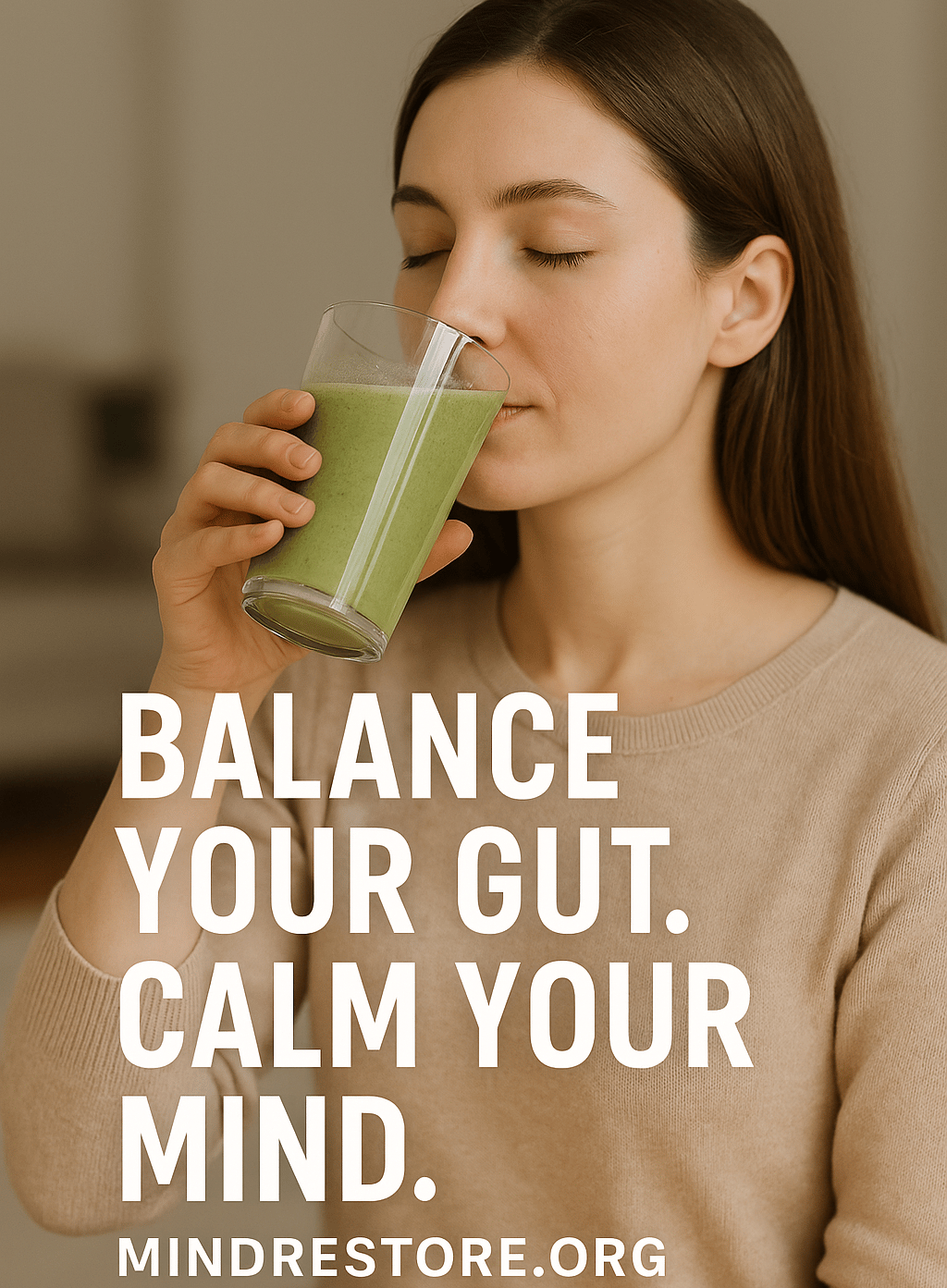Can Probiotics Help with Anxiety? The Surprising Gut-Brain Link
Explore how certain probiotic strains may improve mood, reduce anxiety, and support mental clarity—based on real human research.
7/31/20252 min read


The gut isn’t just about digestion—it’s a command center that quietly influences your emotions, stress response, and even anxiety levels. In recent years, the connection between gut health and mental well-being has become one of the most exciting frontiers in neuroscience.
Welcome to the gut-brain axis, where trillions of microbes are hard at work not only keeping your stomach happy, but potentially calming your anxious mind.
The Science of the Gut-Brain Axis
The gut-brain axis is the communication network linking your gut microbiota and central nervous system. This relationship is bidirectional: stress can impact your gut, and your gut bacteria can influence how you feel.
Studies show that altering your microbiome through specific probiotic strains may help reduce symptoms of anxiety, depression, and even stress-related insomnia.
These are not vague claims—numerous randomized controlled trials have now tested probiotics in humans for their anxiolytic (anxiety-reducing) effects.
What the Research Says
In a 2019 meta-analysis of 21 studies, researchers found that probiotics significantly reduced anxiety levels, particularly in people with mild to moderate symptoms. Another 2021 clinical review published in Nutrients emphasized that psychobiotics—a term for probiotics that impact mental health—may have measurable effects on mood regulation.
The best results were seen with combinations of Lactobacillus and Bifidobacterium strains, especially:
Lactobacillus rhamnosus (JB-1)
Bifidobacterium longum (1714 or R0175)
Lactobacillus helveticus (R0052)
These strains are believed to work by reducing inflammation, modulating neurotransmitters like GABA and serotonin, and lowering cortisol levels—the hormone responsible for your fight-or-flight stress response.
Probiotic or Prebiotic?
While probiotics are live bacteria, prebiotics are the fibers that feed them. Including both in your diet or supplement stack is ideal for supporting long-term gut and mood health.
Foods like bananas, onions, oats, and garlic naturally contain prebiotic fibers. But for a therapeutic effect on anxiety, supplementation is often more consistent and potent.
Choosing a Probiotic Supplement for Anxiety
When shopping for a probiotic designed to support mental health, you’ll want to look for:
Clinically studied strains (not just general blends)
Human-trial backed formulas
High CFU counts (at least 5 billion)
Refrigeration-stable or shelf-stable options
👉 Top Pick: Now Foods Probiotic-10 25 Billion 30 Vcaps
Real People, Real Results
Many people on Reddit and anxiety forums have reported significant improvements in mood and gut symptoms within 2–4 weeks of starting a probiotic. It’s not a miracle cure—but for those with gut-related anxiety or stress digestion issues, it can be a game-changer.
Probiotics are especially promising for:
Anxiety with IBS-like symptoms
Stress-induced digestive issues
Low mood or fatigue following antibiotic use
Hormonal mood fluctuations
Final Thoughts: Are Probiotics Worth Trying?
If your anxiety seems to live in your gut—or if you deal with nervous stomach, bloating, or food sensitivities—you’re likely a good candidate for probiotic support.
While they may not replace therapy or medication, probiotics are one of the most promising natural mood aids available today, with minimal side effects and plenty of upside.
Ready to Try Probiotics for Mental Clarity?
🛒 Check out our recommended probiotic for anxiety on Amazon:
👉 Top Pick: Now Foods Probiotic-10 25 Billion 30 Vcaps
Backed by research. Trusted by users. Built for calm.
Trust the science
Natural supplements backed by clinical research.
support@mindrestore.org
© 2025. All rights reserved.